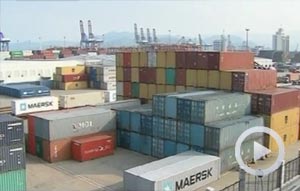Recognition, assistance help restore pride among KMT vets
Updated: 2013-07-06 16:40
(Xinhua)
|
||||||||
Poverty and loneliness
Though they survived the horrors of war, a large number of KMT soldiers are suffering from loneliness and poverty.
A 93-year-old KMT soldier made headlines recently, after he was found living in a narrow apartment beside a foul public toilet for over 30 years in Kunming, the capital of Yunnan province.
An investigation by the foundation last year showed that of the 533 veterans they have located in Hunan, those who live in urban areas earn a monthly salary of between 1,000 to 2,000 yuan, while their counterparts in the countryside only get 60 yuan.
"Many vets never married, as some were confined to labor camps for as long as two decades after their troops lost the civil war. Also, girls then often shunned them because of their experience with the 'enemy,'" Sun said.
Lai En'dian clearly remembers his shock when visiting a blind veteran in Hunan in 2007. "There was not a real piece of furniture in the room. He said he was so poor that he hadn't eaten any meat for three months."
Some soldiers living alone are concerned about who will hold a funeral for them, which is traditionally a duty of offspring, according to Lai.
The veterans' situation has improved in recent years, with local governments increasing their efforts to promote veterans' welfare and NGOs that provide assistance are thriving, said Chen Xibao, who used to head the Anhui branch of the student association with the KMT-founded Huangpu (Whampoa) Military Academy.
Hope for honor
In addition to living assistance, what the KMT veterans desire most are respect and recognition from the public and the government.
Sun said many who fear themselves being harmed and family members implicated during political movements have opted to keep their experience with the KMT troops a secret, seeing it a heavy stigma despite the sacrifices they made to safeguard the country.
You Guangcai said because of his links with the KMT, he lost his job as a woodworker, his wife divorced him in the early 1950s and he was alienated from his parents and brother.
"But I'll not put the blame on anyone. Anyway, it's a great comfort for me that our country has embarked on the right path," said the 84-year-old veteran living in Beijing.
The veterans have struggled to suppress their grievances for over half a century, said Sun, "Therefore, they greatly treasure the recognition and honor from the government."
The veterans became slightly relieved only after then-Chinese President Hu Jintao spoke highly of the contributions the KMT troops made in expelling the Japanese invaders in 2005.
"It's no wonder that a serviceman would move earth and heaven for honor," said Ke Yuewu, a volunteer who offers veterans medals made by caring people as gifts.
Although the vast majority of the veterans have not obtained medals from the government, the alternatives also serve as a consolation, Ke said. "Many of the elderly burst into tears when they see the medal."
At the first glimpse of his medal, 94-year-old Zhao Haichen stayed silent for a while, then said, "I feel much fulfilled now, compared with my comrades in arms who died at the battlefield nameless."
- KMT veterans deserve fair treatment: MOC
- KMT vets who fought Japanese are saluted
- Ministry says KMT veterans will be cared for
- KMT veterans may finally be honored on anniversaries
- Mainland, Taiwan share peaceful aspirations: KMT
- Hu lauds Taiwan ties in meeting with KMT leader
- KMT chief calls for stable cross-Straits ties
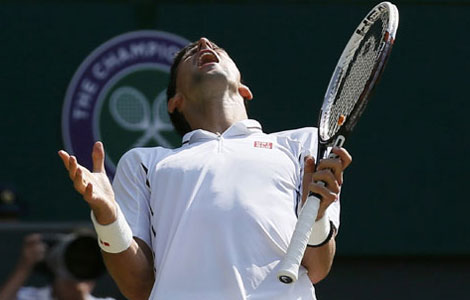
 Djokovic, Murray to vie for Wimbledon title
Djokovic, Murray to vie for Wimbledon title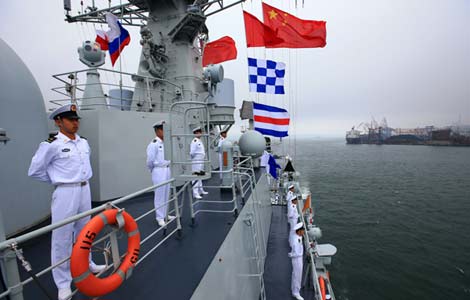
 China-Russia navy drill furthers ties
China-Russia navy drill furthers ties
 Famed monkey takes a new direction in New York
Famed monkey takes a new direction in New York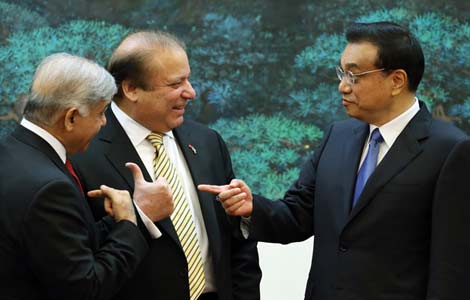
 China, Pakistan ink transport pact
China, Pakistan ink transport pact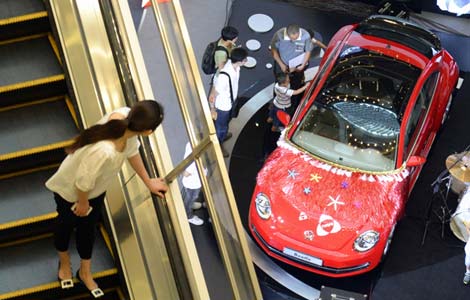
 Passenger car sector outlook brightens
Passenger car sector outlook brightens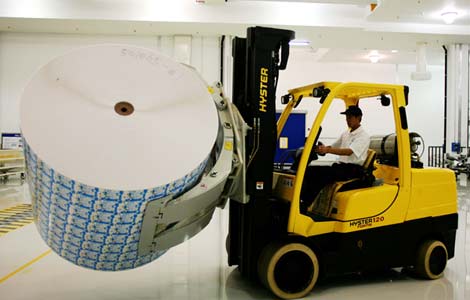
 Multinationals face increased scrutiny
Multinationals face increased scrutiny
 Kobe Bryant reportedly has highest net worth in NBA
Kobe Bryant reportedly has highest net worth in NBA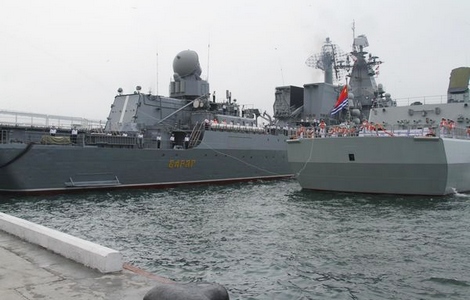
 Chinese fleet arrives in Vladivostok for drills
Chinese fleet arrives in Vladivostok for drills
Most Viewed
Editor's Picks

|

|

|

|

|

|
Today's Top News
China reiterates prudent monetary policy
Companies plan massive investment in Xinjiang
Tetra Pak probed in China
Venezuela offers asylum to Snowden
China, Pakistan ink transport pact
24 dead in Egypt protests
High hopes for China-US talks
Li: 'India is an important neighbor'
US Weekly

|

|

